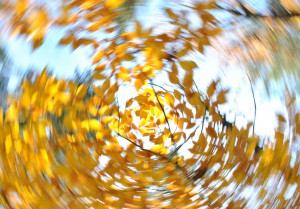Neuronitis or Vestibular Neuritis
The vestibular neuronitis or neuritis is a viral involvement of the vestibular nerve. It results in a sudden strong rotatory vertigo, very severe reaching its highest peak a few hours later. The patient reports a significant dizziness, thus keeping him in bed. The slightest movement increases the vertigo. Unlike BPPV, nausea and vomiting are very important. Dizziness lasting several days and the symptoms gradually decrease.
There are no cochlear signs associated to vestibular neuritis. That is, there is no hearing loss. If vestibular neuritis is associated to hearing loss, it is therefore called labyrinthitis.

Physical examination shows high intensity nystagmus beating to the opposite side of the lesion.
The VNG confirms the diagnosis by showing a unilateral vestibular paresis. If the VNG does not show vestibular deficit, we must go further in the investigation to rule out other vascular or central pathology. Ask your doctor!
Treatment is symptomatic in the acute phase such as anti-vomiting drugs (suppository Gravol).
After the acute phase, vestibular rehabilitation may be necessary for vestibular compensation. At the Polyclinique Centre-Ville adult and pediatric vestibular physiotherapists are specialized in this field. They can themselves monitor your treatment using goggles connected to the computer to identify your nystagmus.
_____________________________________
Anatomy and Function of the labyrinthe
Definition
Do you have vertigo? An imbalance?
Benin Paroxysmal Positional Vertigo (BPPV)
Meniere’s disease
Neuronitis or vestibular neuritis
Labyrinthitis
Dehiscence of the superior canal
Cervical dizziness
Perilymphatic fistula
Migraine and vertigo / Vestibular Migraine
Basilar migraine and vertigo
Vertigo of central origin
Psychogenic vertigo
Vertebrobasilar insufficiency and imbalance
